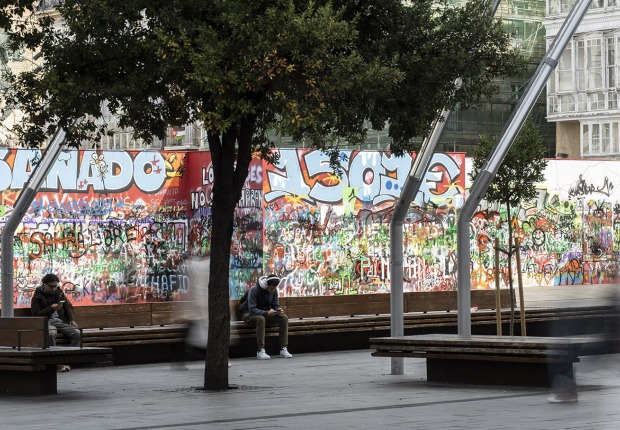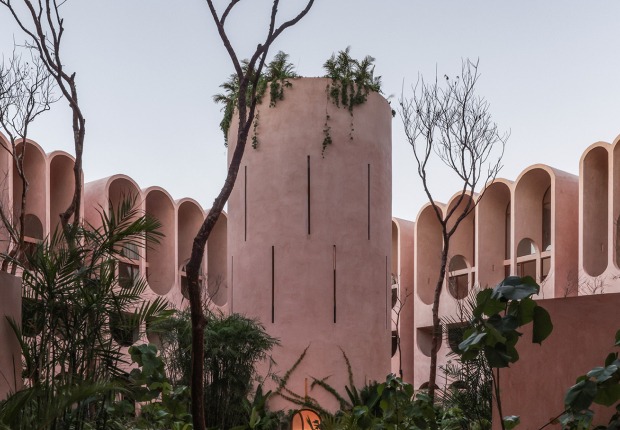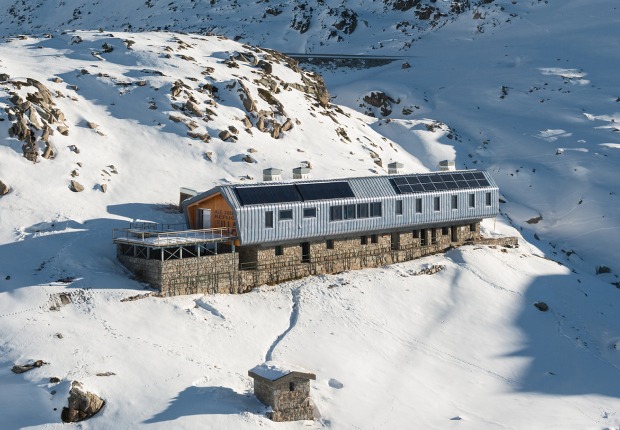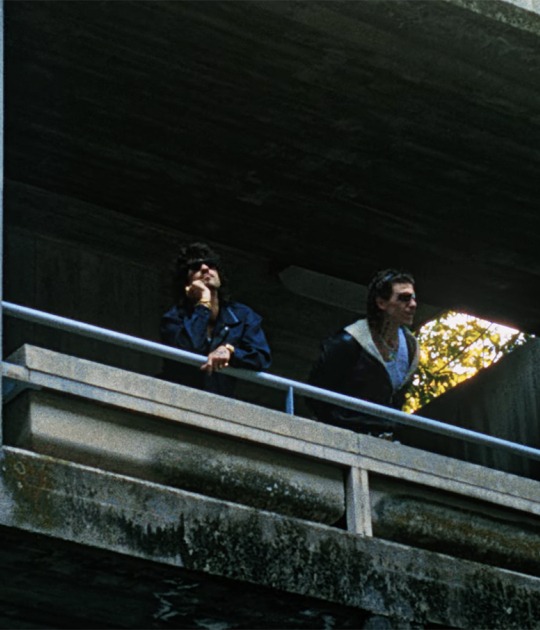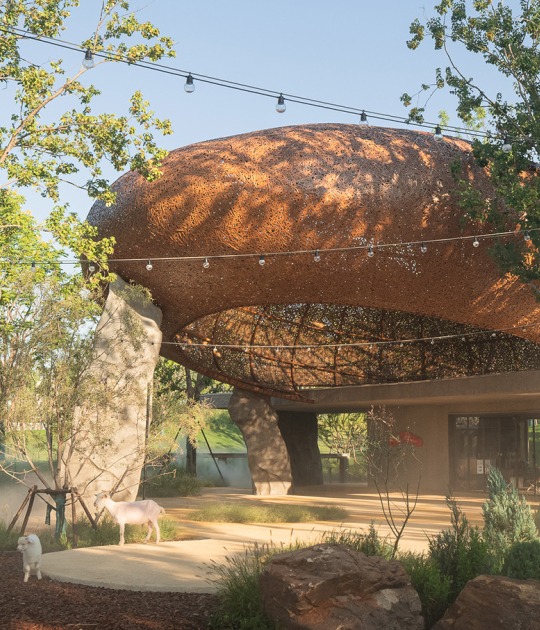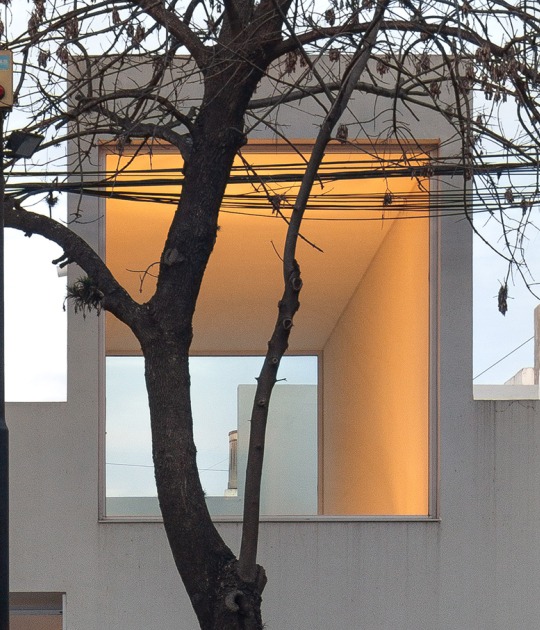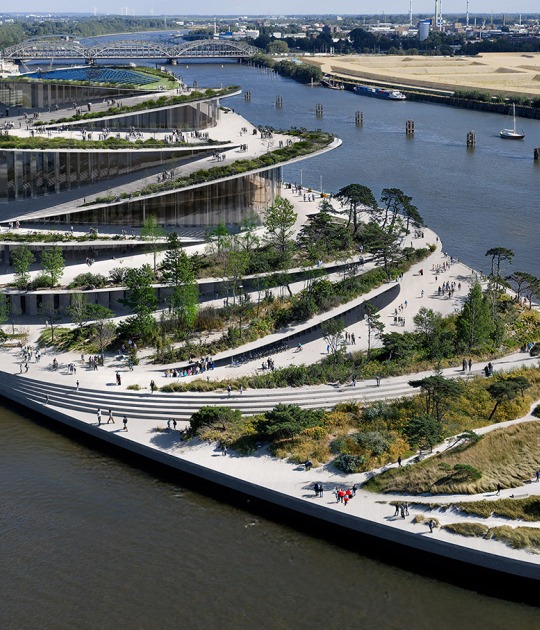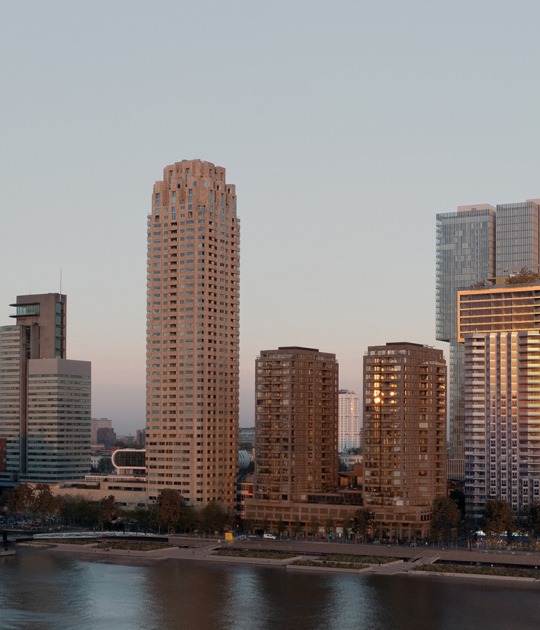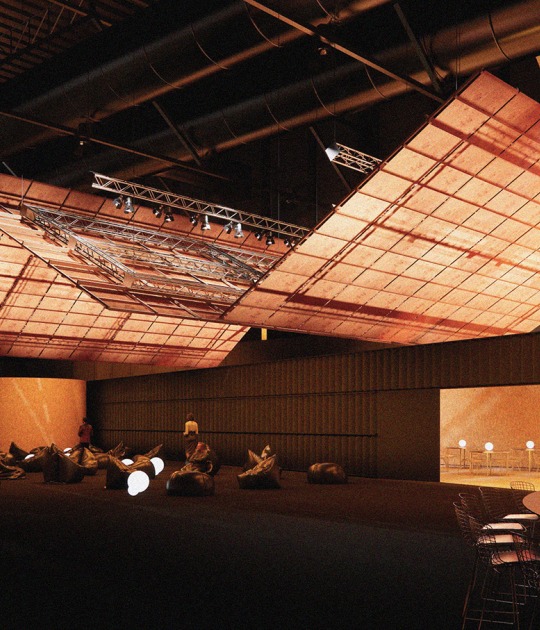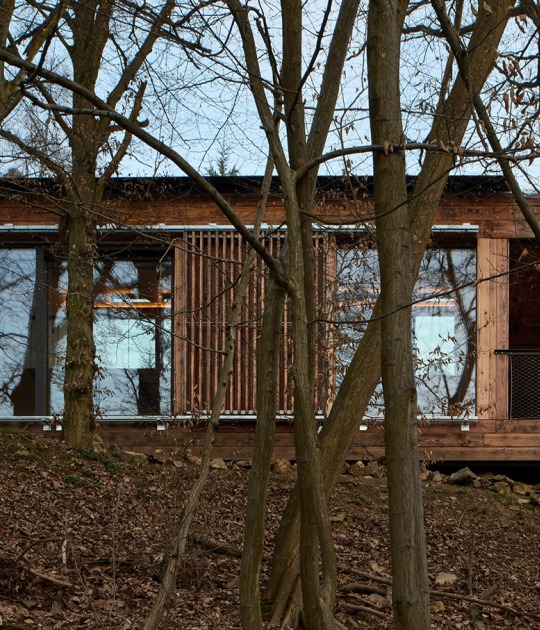
Project Mingde's intervention was carried out in different phases, starting with the renovation of the existing school building, and improving its structural and functional integrity. In the second phase, the construction of an educational centre and a cultural centre with highly flexible spaces was undertaken, allowing users to adjust them according to their needs.
The building promotes natural ventilation and optimises thermal control, but also provides new sustainable sanitary facilities to the complex to remedy the significant hygiene problems suffered by the school community. The building adopts a cascading form, culminating in a series of stepped roofs that channel rainwater into a lotus collection pond, as well as an underground recycling system.

Duling Educational and Cultural Centre by Project Mingde, The University of Hong Kong. Photograph by Jin Weiqi.
Project description by Project Mingde
The journey began in the quaint Hakka village of Duling, nestled in the verdant countryside of Guangxi, China. Duling is a place where time seems to slow down and the air thrums with the rhythms of rural life. This village, home to a community of around 3,000 Hakka people, embodies values of hard work and education, deeply ingrained in the fabric of everyday life.
Nestled amidst a land blessed with ample rainfall but suffering from a scarcity of fresh water, the village faced a paradoxical challenge. The villagers, who witness rain showers on a regular basis, found themselves reliant on a meager supply of well water due to the absence of a water infrastructure. This deficiency gave rise to hygiene concerns that threatened to endanger the health and well-being of the community, particularly the vulnerable younger generation.

Culturally-respectful sustainable design
The project aimed to address the needs of the community, while respecting the inherent values of Hakka culture. The design principle, grounded in sustainability and reverence for tradition, sought to transform a village beset by challenges into an environment offering a safe space for children to play and learn, and a place for villagers to meet and connect.
The Duling project was undertaken as a nonprofit endeavor by students at the University of Hong Kong, guided by professionals through the platform of Project Mingde. It unfolded in two phases. Initially, renovation of the existing school building was undertaken, enhancing its structural integrity and creating an additional roof structure to shield it from further weather-induced deterioration. Additionally, a sustainable toilet facility was introduced to remedy the pressing hygiene issues that afflicted the school community.
The second phase encompassed the construction of a kindergarten and cultural center for the village. This design leveraged the challenge of heavy rainfall, transforming it into a crucial resource to alleviate the community's freshwater scarcity. Taking into consideration the site's topography, airflow, landscape views, and culture, the building adopts a cascading form, culminating in a series of tiered roofs. These roofs channel rainwater into a collection lotus pond and subsequently into an underground recycling system. From there, clean water is eventually pumped up into the building for use.

An embrace of cultural incluence
Inspired by the significance of the water pond in Hakka culture, the building's design centers around a lotus pond, which serves both as a reservoir for rainwater and as a symbol of education. This pond is reminiscent of intrinsic cultural heritage, while seamlessly integrating sustainability into the architectural narrative.
Openness and versatility of the space were key considerations throughout the creative process. The interior classroom spaces were designed to merge with outdoor spaces, maintaining a flexible arrangement while maximizing airflow and optimizing thermal control. These highly configurable spaces allow users to adjust them according to their needs without being constrained by a fixed arrangement. This approach prioritizes the needs and preferences of the users, allowing for an interactive experience within the space.

Fostering bonds and removing cultural barriers
When closing this chapter of the journey, it is essential to reflect on the true essence of the project that has been embarked upon. Beyond the functionality of the physical structures erected, their intrinsic value lies in the philosophical foundations upon which they are built. These principles, steeped in humanity, compassion, and cultural sensitivity, serve as the driving inspiration behind these efforts.
Through this work, the profound impact of the built environment on fostering strong community bonds and transcending cultural and geographical barriers has been understood. These ethical dimensions have allowed for the creation of spaces that embody mutual respect and understanding, showcasing the resilience of the human spirit.
















